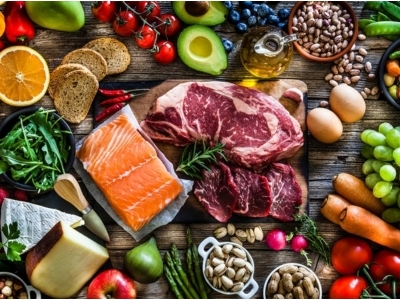How Do You Eat Yours?
Listed Under: Blog
How do you Eat Yours?
As we enter the warmer months of the year, there would have been a time where we began to eat very differently as we came out of the winter and into the spring. We would have moved away from relying on the larder stores of the previous season and begun to see the fruits of our labours (literally) in the gardens and allotments in which we grew our own produce.
There are many debates about the relative merits of eating Organic produce and whether this is truly ‘better for us’ or not. When we take into account the fact that “Organic” is a term developed by the Soil Association, a UK based organisation, it becomes apparent that the definition of organically-produced goods around the world actually differs.
Here in the UK, “Organic” is a system of farming and food production that produces high-quality food, using methods that benefit our whole food system, from people to planet, plant health to animal welfare
(Soil Association revised definition, 2021 www.soilassociation.org ).
Their standards are built on their values of health, ecology, care and fairness and the certification for organic food production is a thorough process, which can mean prices come at a premium.
Organic food production is designed to use fewer chemical pesticides and weedkillers; instead opting for creation of a more natural balance between plants and animals within the ecosystem to prevent pest problems, and optimising crop rotations to control disease.
Synthetic fertilisers are replaced with longer term strategies to build rich, fertile soils.
Animal welfare is paramount and the Soil Association Organic Accreditation carries the highest of animal welfare standards covering aspects of husbandry from feed, to living conditions, transport, breeding frequencies and slaughter procedures.
There is no routine use of antibiotics in our UK Organic farming practises and the use of Genetically-Modified (GM) feeds and ingredients is banned on all UK organic farms.
Organic foods must not contain artificial colours, preservatives or hydrogenated fats, as organic standards prohibit the use of such toxic ingredients, commonly the causes of many allergies, intolerances, digestive conditions as well as social, psychological and behavioural challenges in both adults and children alike.
For a food to be labelled as ‘Organic’ it must have at least 95% of its ingredients sourced from organically produced plants or animals. Accreditation is not an easy or a cheap process. This can make the process of buying organically producing foods prohibitive for some families.
So, what can we do?
My suggestion would be to look at what we can eat that we source locally and seasonally as a great start. Not all of us are in a position, or indeed have the great calling, to roll up our sleeves and grow our own veg and tend to chickens or even pigs in our back garden! However, the rise of the local farm shop, locally sourced fruit and veg boxes, even allotment shares where growers can sell off or swap their excess produce, are great ways you can ‘do you bit’ as well as being ‘responsible’ about where you source your food from. Local means fewer food miles to get to you after all - I dread to think how many miles the average supermarket pineapple or banana has travelled!
I searched “Veg Box Deliveries near me” on my search engine and came up with lots of local offerings for the Bristol and South Gloucestershire area. You can easily do the same for suppliers near you.
Our providers around Bristol and South Gloucestershire were box deliverers such as www.bristolvegboxes.co.uk or www.regtheveg.co.uk or www.thefruitboxcompany.com or www.leighcourtfarm.org.uk or www.thevegbox.biz down in Clevedon. Larkhall and Newton St Loe both have great farm shops if you are down in the Bath direction or, if larger scale Organic appeals then look at www.oddbox.co.uk or www.riverford.co.uk or www.abelandcole.co.uk
I found a great site this week at www.eufic.org/en that helps us look at seasonal produce and how we can do our bit to eat more sustainably here in the UK. Our supermarket shopping habits mean most of us wouldn’t have the first idea now that the asparagus season is about to start, or this is great time to harvest early rhubarb and ‘get your crumble on’! We can pretty much get anything at any time of the year…strawberries in the height of winter?….no problem!
The nutritional value of organic ‘v’ non-organic will rumble on as a hotly-contested scientific debate for years to come. There is conflicting evidence to be 100% sure that eating an organic diet is absolutely better for you at a micronutrient level. Certainly, if the cost becomes prohibitive enough to limit the variety of foods you eat, then organic isn’t the way to go for you.
So, what might your options be to look at your diet over the coming season? What are your criteria for choosing what you eat on a daily, weekly, monthly, seasonal basis? I’d be interested to hear next time we meet :-)
We can do that via my diary link at www.calendly.com/tipthebalance/60-minute-121


 loading...
loading...